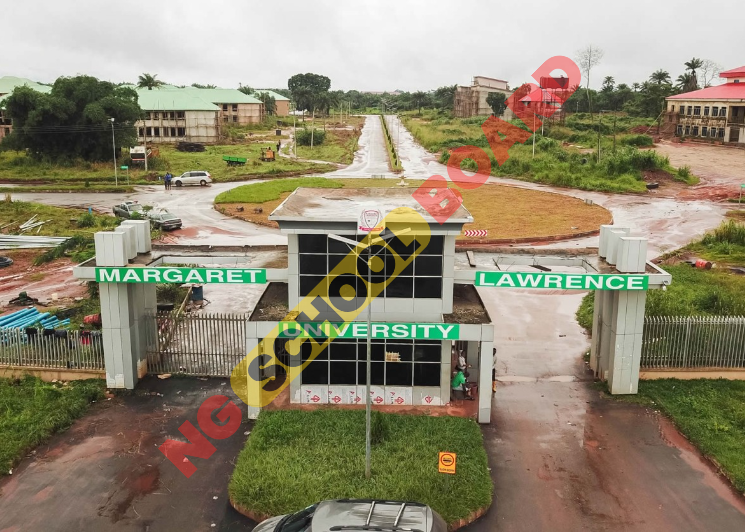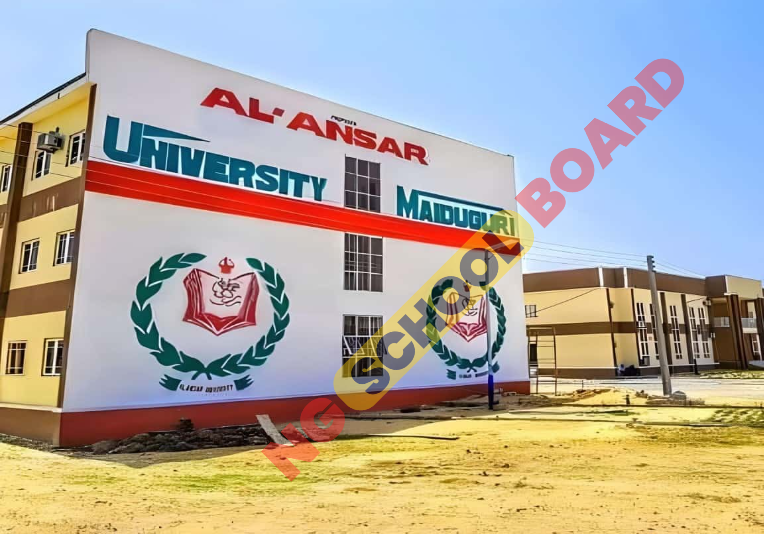Undergraduate Courses at Atiba University
Atiba University, located in Oyo State, Nigeria, offers various undergraduate degree programs across several faculties. With a focus on quality education, research, and service, Atiba University aims to produce graduates who are innovative thinkers and leaders in their fields.

ALSO SEE:
Top 5 Most Useless Courses to Study in Nigeria Universities and Why
List Of Ken Saro Wiwa Polytechnic Courses & Requirements
Federal University Lafia: Comprehensive Guide
University of Delta Courses Offered
Overview of Atiba University
Established in 2011, Atiba University is a private Nigerian university that is currently made up of five faculties:
- Faculty of Arts, Social and Management Sciences
- Faculty of Natural and Applied Sciences
- Faculty of Allied Health Sciences
- Faculty of Law
- Faculty of Education
The university is focused on providing students with the knowledge and skills needed to succeed in today’s evolving job market. They utilize a practical approach to learning, ensuring students graduate with both strong academic foundations and professional capabilities.
Atiba University’s mission is to be “a citadel of learning, a community with shared vision, and a light set on a hill that cannot be hidden.” Their goal is to foster positive change at all levels – locally, nationally, and globally.
The university currently offers a wide range of undergraduate programs across over 15 departments. They continue to expand their academic offerings over time. Read more HERE.
Accreditation
Atiba University is fully accredited by the National Universities Commission (NUC), which is responsible for approving and regulating all university education in Nigeria. This accreditation means they have met strict standards in areas such as faculty qualifications, facilities/equipment, and the overall quality of education provided.
Students can feel confident that Atiba University offers legitimate, valuable degrees that are recognized within Nigeria and abroad. Their accreditation also makes it possible for students to access loans and scholarships for their education.
Faculty of Arts, Social and Management Sciences
The Faculty of Arts, Social and Management Sciences is the largest faculty at Atiba University, overseeing several popular departments from the humanities to business disciplines.
Departments and Courses
Accounting: The Accounting department offers an undergraduate program leading to a B.Sc. in Accounting. Students take courses in financial accounting, cost accounting, taxation, auditing, and more. The program aims to equip students with the knowledge and capabilities to work as professional accountants.
Core courses include:
- Principles of Accounting
- Intermediate Accounting
- Management Accounting
- Taxation
- Auditing
Agricultural Extension and Rural Development: This department provides in-depth knowledge of agriculture science and rural development policies. Students gain the skills to support community agriculture and facilitate change in rural areas.
Core courses cover topics like:
- Introduction to Agricultural Extension
- Communication Skills
- Principles of Rural Sociology
- Entrepreneurial Skills in Agriculture
- Sustainable Agriculture Systems
Banking and Finance: Students pursuing a B.Sc. in Banking & Finance analyze financial systems, markets, and institutions. The program produces graduates ready for careers in financial services, either domestically or internationally.
Core banking and finance courses include:
- Principles of Finance
- Financial Institutions and Markets
- International Finance
- Investment Analysis
- Development Finance
Business Administration: Atiba University offers a Bachelor of Science (B.Sc.) degree in Business Administration. The program provides training across all aspects of managing a business. Students can specialize through elective courses.
The core courses in this program cover:
- Introduction to Business
- Business Communication
- Marketing Principles
- Human Resource Management
- Business Ethics
Criminology and Security Studies: This department aims to produce criminology experts ready to support law enforcement, security, intelligence agencies and more in both public and private sectors.
Core courses include reviewing:
- The Criminal Justice System
- Criminal Behavior
- Crime Prevention Strategies
- Criminal Investigations
- Security Administration
Economics: Atiba’s undergraduate Economics program equips students with analytical skills and knowledge of economic theories, issues, and systems. Graduates pursue careers as financial analysts, consultants, and researchers.
Core coursework covers:
- Principles of Economics
- Intermediate Microeconomics
- Intermediate Macroeconomics
- Introduction to Econometrics
- Economic Development of Nigeria
Educational Management: Students pursuing a bachelor’s degree in Educational Management take courses in education foundations, curriculum design, financial planning, school leadership strategies, and more. Graduates may work in administrative positions within school systems.
Typical required courses cover:
- Introduction to Educational Management
- Instructional Supervision
- Education Finance
- School Plant Management
- Human Resource Management in Schools
English Language: This program provides training in linguistics, applied English language skills, and literature analysis. Graduates have strong communication abilities valuable across many industries.
Core English courses include:
- English Grammar and Composition
- Phonetics and Phonology
- Introduction to Syntax
- The History of English Literature
- African Literature
Career Prospects
Graduates from departments in the Faculty of Arts, Social and Management Sciences have strong job prospects within Nigeria and abroad. These programs open doors to careers like:
- Accountants
- Financial analysts
- Bank managers
- Entrepreneurs
- Business executives
- Marketing specialists
- Human resources managers
- Crime analysts
- Education administrators
- Policy advisors
- Development economists
- Writers and editors
- Public relations officers
- Survey researchers
Many graduates also continue their education through postgraduate degrees, conducting impactful research or gaining additional specializations.
Faculty of Natural and Applied Sciences
Atiba University’s Faculty of Natural and Applied Sciences focuses on scientific knowledge across areas like biology, physics, mathematics and information technology. Students build strong analytical and research skills.
Departments and Courses
Biochemistry: The Biochemistry undergraduate program provides extensive lab work and explores the chemical processes powering living organisms. Graduates move into biotech research, the pharmaceutical industry, medicine and more.
Typical required biochemistry courses include:
- General Biochemistry
- Clinical Biochemistry
- Enzymology
- Metabolism
- Biochemical Techniques
Biology: Undergraduate students pursuing a B.Sc. in Biology take a range of courses exploring organisms, cells, evolution and ecosystems. Graduates may conduct further research or work in fields like botany, biotechnology or conservation.
Some core biology courses cover:
- Diversity of Plants
- General Physiology
- Genetics & Molecular Biology
- Histology & Microtechniques
- Ecological Management
Chemistry: Atiba University offers a well-rounded chemistry program covering topics from inorganic to physical to analytical chemistry. Students gain extensive lab experience and strong research skills.
Core courses in the chemistry program include:
- General Chemistry
- Organic Chemistry
- Physical Chemistry
- Analytical Chemistry
- Industrial Chemistry
Computer Science: The B.Sc. program in Computer Science equips students to design, develop and manage software and information systems. Electives allow customization into focus areas like machine learning, cybersecurity, game development and more.
Foundational computer science courses feature topics such as:
- Introduction to Programming
- Data Structures and Algorithms
- Database Management
- Software Engineering
- Web and Mobile App Development
Mathematics: This program provides rigorous training in mathematical theories, problem-solving, modelling, analysis, and statistics. Graduates have the expertise to conduct advanced analysis across sectors like engineering, finance, data science and more.
Core mathematics courses include:
- Calculus
- Linear Algebra
- Probability Theory
- Abstract Algebra
- Mathematical Statistics
Microbiology: Through exploring microorganisms and their impacts, undergraduates gain the expertise to conduct critical research or work in settings like pharmaceutical companies, food/beverage production, or biotechnology.
Typical required microbiology coursework examines:
- General Microbiology
- Medical Microbiology
- Food Microbiology
- Environmental Microbiology
- Industrial Microbiology
Physics: Atiba’s physics program covers the foundations of physics while allowing students to specialize through elective courses. Graduates have the skills for research or applied careers in engineering, renewable energy, telecommunications and more.
Introductory physics courses cover topics like:
- Mechanics
- Electromagnetism
- Thermodynamics
- Quantum Physics
- Optics
Career Prospects
Given their strong scientific training, graduates from departments within Atiba’s Faculty of Natural and Applied Sciences thrive in careers such as:
- Medical professionals
- Pharmaceutical researchers
- Biotechnologists
- Software engineers
- Data scientists
- Statisticians
- Science writers
- University lecturers
- Policy analysts
Graduates are equipped for advanced analysis and research at the postgraduate level as well. Many pursue master’s and Ph.D. programs at universities within Nigeria or abroad.
Faculty of Allied Health Sciences
The Faculty of Allied Health Sciences administers programs geared towards careers in supporting patients and the healthcare system. Graduates gain clinical skills they apply in hospital settings or clinics in roles like nursing.
Programs and Courses
Medical Laboratory Science: Students pursuing this undergraduate degree learn proper techniques for effectively conducting diagnostic tests on patient samples. This supports health professionals in accurately detecting and treating diseases.
Typical required coursework covers:
- General Laboratory Practice
- Diagnostic Microbiology
- Blood Transfusion Science
- Histopathology Techniques
- Clinical Chemistry
Nursing: Atiba University offers a Bachelor of Nursing Science (B.N.Sc.) degree program that combines theoretical education with professional clinical practice. Students gain expertise in treatment planning, health education, emergency care and more.
Core nursing courses include topics like:
- Fundamentals of Nursing
- Adult Health Nursing
- Mental Health Nursing
- Maternal & Child Health Nursing
- Community Health Nursing
Career Prospects
Given their specialized clinical training, common careers graduates from these programs enter include:
- Nurses
- Medical technologists
- Lab managers
- Public health officers
- Health educators
Graduates also sometimes continue into advanced degree programs like a Master of Science in Nursing. This allows them to specialize and take on greater leadership roles.
Faculty of Law
Aspiring legal professionals can earn an undergraduate degree to launch their careers through Atiba University’s Faculty of Law.
Program Details
Atiba offers a five-year undergraduate program leading to a Bachelor of Laws (LLB) degree. Throughout the program, students take courses covering all key aspects of Nigerian law. The curriculum ensures graduates have expertise regarding legal theory, principles, and processes critical of civil or criminal practice law.
Core law courses examine topics like:
- Constitutional Law
- Contract Law
- Tort Law
- Criminal Law
- Land Law
In their final year of study, students also gain practical experience through courtroom observations and law firm internships.
Career Prospects
An LLB degree is required for graduates to move forward into careers like:
- Legal practice as a solicitor or barrister
- Judge
- Paralegal
- Government policy adviser
- Legal academic
Many students also continue into postgraduate legal programs, such as a master’s or Ph.D focusing on topics like corporate law, environmental law, intellectual property law and more. These advanced degrees unlock additional career opportunities.
Frequently Asked Questions
How many courses can an undergraduate student take in a semester at Atiba University?
The standard full-time credit load taken by undergraduate students at Atiba University each semester is 4-6 courses. Students can typically manage 1-2 courses during shorter summer sessions.
Are any of the undergraduate degree programs at Atiba University available to study online?
While some course components and materials may be accessed online, at present, all undergraduate degree programs at Atiba University require a certain percentage of courses to be completed in person. Only their postgraduate programs offer select full online degrees.
Does Atiba University offer student housing?
Yes, Atiba University offers hostel accommodations for students on campus. Both male and female halls of residence are available. For undergraduate students, the advantage of on-campus living is proximity to classes, the library, and extracurricular events.
Can I receive a scholarship as an undergraduate at Atiba University?
Atiba University offers several scholarship opportunities for undergraduate students based on specific criteria. This includes general need-based financial assistance, as well as merit scholarships for academic achievement. Students should apply upon admission by reaching out to the office of their department head.
Will Atiba University provide career support or internships?
Yes, Atiba University aims to enhance the employability and career readiness of undergraduate students in several ways. This includes guidance from faculty advisors regarding opportunities, industry partnerships facilitating internships, professional skill-building workshops, and job search support from the careers service centre.
Conclusion
Atiba University is still a young institution, yet it has quickly distinguished itself due to its commitment to delivering quality higher education grounded in innovation and professional growth. Their undergraduate degree offerings span diverse fields – from economics to microbiology to law and more.
Students at Atiba University graduate with the knowledge, critical thinking abilities, and practical skills needed to excel in their careers or further studies both in Nigeria and internationally. They benefit from a balance of theoretical and applied learning from expert faculty members.
As Atiba continues expanding both student enrollment and facilities, they remain dedicated to producing graduates ready to take on 21st-century challenges as entrepreneurial leaders in their disciplines. Prospective students can feel confident choosing Atiba University for their undergraduate education.

Hello, I’m Emeka by name, an article writer with a passion for words and storytelling. I have a knack for crafting engaging and informative content that captivates readers and delivers valuable insights. Whether it’s exploring the latest trends, sharing knowledge, or diving into creative narratives, I’m here to bring words to life. Join me on a journey through the world of ideas and stories as we explore the power of written expression.





